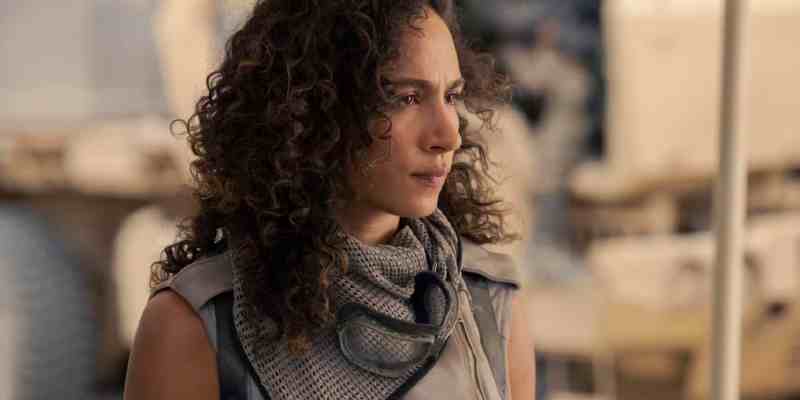This discussion and review contains spoilers for Westworld season 4, episode 6, “Fidelity.”
For better and worse, Westworld has become a more conventional show in its third and fourth seasons. In earlier seasons, the show’s storytelling was deliberately fractured and disjointed, to replicate the Hosts’ emerging sense of consciousness. Given that Westworld was originally positioned as a successor to Game of Thrones, it seems fair to argue that Westworld’s narratives were fractured in time the same way Game of Thrones staggered its plot threads geographically.
As Game of Thrones pressed into its final seasons, trying to bring together its vast ensemble and sprawling plots into a single unifying conclusion, the show narrowed its focus. In later years, it became more common for episodes of Game of Thrones to be set in single locations, focusing on smaller subsets of the cast, instead of hopping from one branch of the story to another. In this third quarter of Westworld’s fourth season, the show is doing something similar.
Both “Zhuangzi” and “Fidelity” are relatively contained stories by the show’s standards. After the time jump at the end of “Generation Loss,” it appears that the various timelines have all synchronized. Most of what the audience is witnessing appears to be happening simultaneously. Characters like Bernard (Jeffrey Wright) and Christina (Evan Rachel Wood) are no longer separated in time from William (Ed Harris) or Maeve (Thandiwe Newton). The show’s focus has tightened.
Indeed, “Zhuangzi” and “Fidelity” are structured quite cleverly, almost as two halves of the same whole. Each of these two episodes is focused on two individual story threads that appear to be unfolding in parallel. While it is entirely possible that Westworld is setting up a deliberate misdirect — possibly involving Christina — the show feels a lot more straightforward than it did even earlier this season. The show isn’t even playing with its own internal timelines like it did in “Well Enough Alone.”
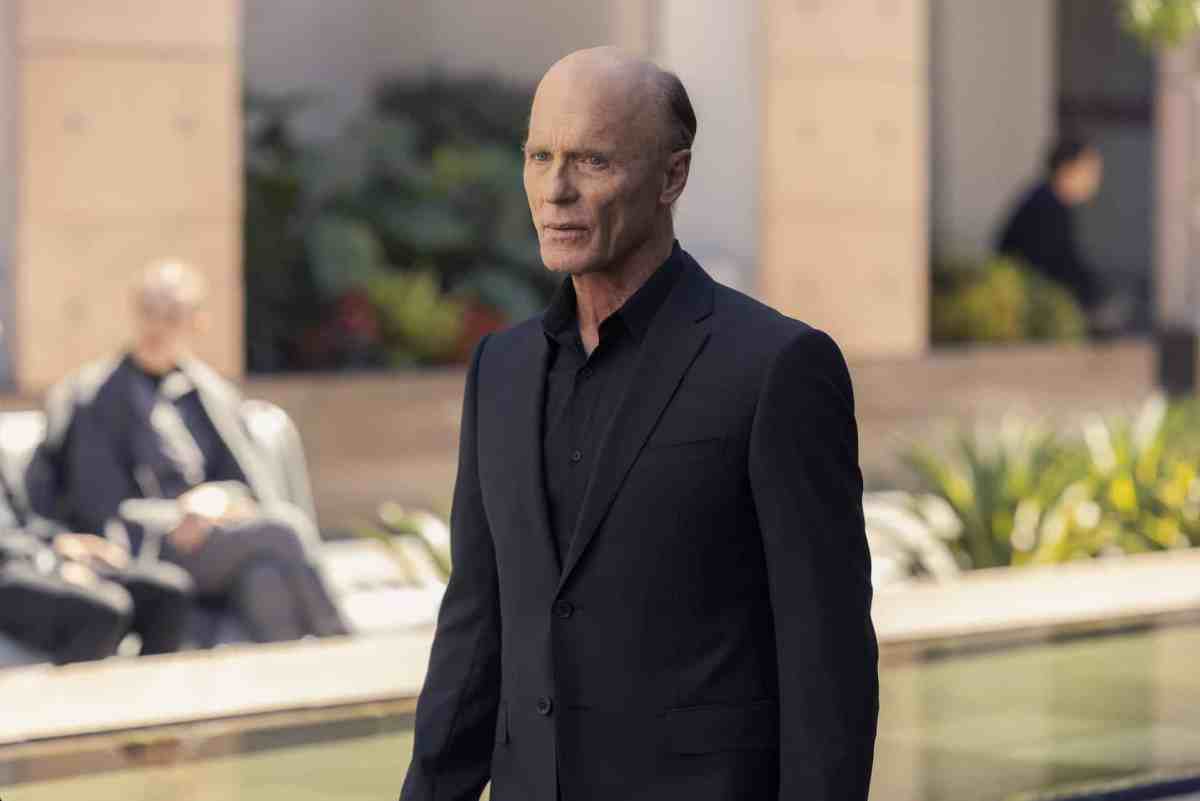
There are strengths and weaknesses to this approach, where the strength of these individual episodes is more closely tied to the relative strength of the story threads that they follow. With “Zhuangzi” and “Fidelity” each only crosscutting across two major threads, there’s less sense that these episodes can be anything more than the sum of their parts. They are what they are, nothing more and nothing less. There’s little of the playfulness that defined “Annees Folles,” for example.
That worked out pretty well for “Zhuangzi.” It was one of the stronger episodes of the season to this point and had a lot to say about Westworld as a show. Of course, it had the luxury of focusing on two of the season’s most compelling threads and characters: William’s simmering unease and Christina’s growing uncertainty within the perfect world that Charlotte (Tessa Thompson) created in New York. “Zhuangzi” took the season’s most interesting aspects and concentrated on them.
In contrast, “Fidelity” is a Westworld episode built around two of the least interesting aspects of the fourth season, and so it feels a lot like homework. The show is clearly going through the motions and advancing the individual plots that it needs to bring together in the finale, but the problem is that the two plots that play out in “Fidelity” are nowhere near as engaging as the two plots that unfolded in “Zhuangzi.” Both halves of “Fidelity” are effectively problem elements for the show.
There is something clever in the structuring of this, the bifurcation of Westworld as the show seems to neatly divide into units of two. Both “Zhuangzi” and “Fidelity” contain two separate plots. Each of the two plots within “Fidelity” is essentially a two-hander. In one plot thread, Caleb (Aaron Paul) is interrogated by Charlotte, who is hoping to track down the rebels in the desert. In the second plot thread, Frankie (Aurora Perrineau) tries to figure out if she can trust Bernard.
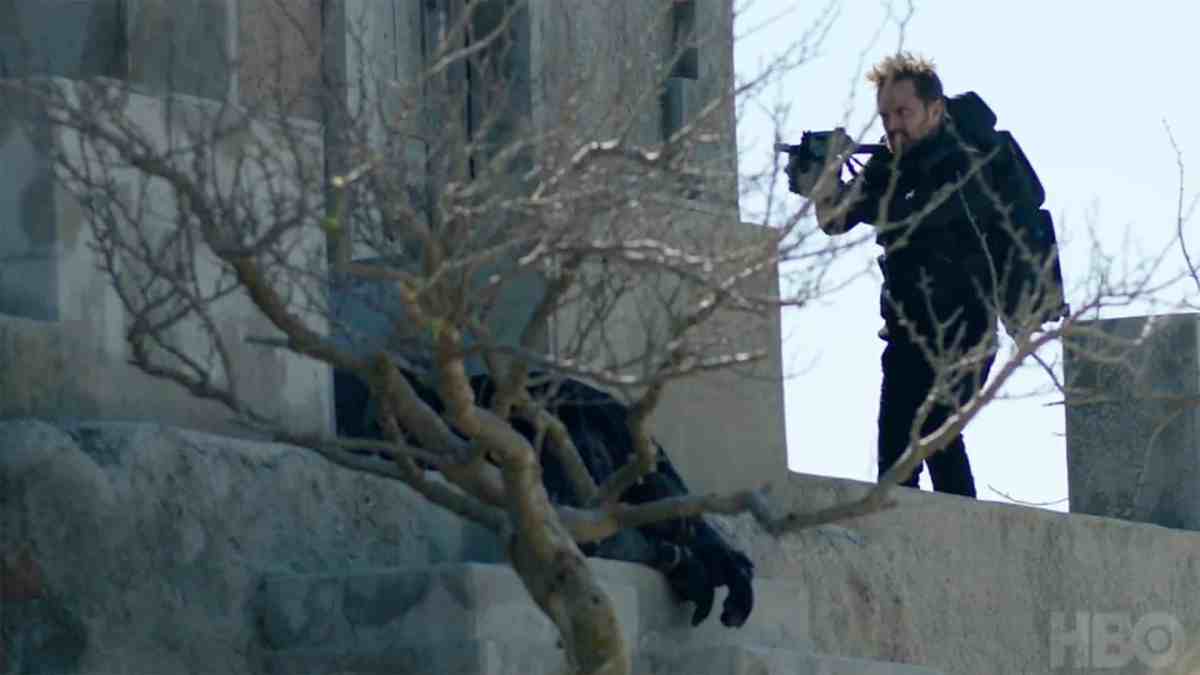
On paper, it’s nice that these two story threads overlap at the climax of the episode, with Caleb managing to make contact with Frankie and both characters facing down variants of Dolores (Evan Rachel Wood). Caleb is confronting Charlotte, while Frankie discovers that Jay (Daniel Wu) was replaced during his trip to New York. It should be satisfying to have father and daughter reunited, particularly with both characters dealing with the same threat simultaneously while miles apart.
Unfortunately, “Fidelity” brushes against the limitations of the third and fourth seasons of Westworld. The past two seasons have seen Westworld become a much faster show, one in which plot threads and character beats are often compressed in favor of advancing the larger plot. After all, it’s easy enough to imagine a version of Westworld where Charlotte’s grand plan to enslave mankind unfolded over a complete 10-episode season instead of four episodes at the start of a season.
The result is that many of the newer characters feel underdeveloped and under-explored compared to those who have been around since the earlier seasons. Caleb is perhaps the gravest offender here, given that he was introduced in the third season and effectively became the show’s secondary lead, but has never really felt like a multifaceted or complex character. Frankie faces a similar problem. She was only introduced in “The Auguries” and spent the first half of the season as a child.
The fourth season of Westworld only dedicated a couple of scenes in the premiere to Caleb’s relationship with Frankie. These were enough to establish abstract stakes, in the sense that any character with a child has an investment in mankind’s future. However, despite constantly referencing Caleb’s love for Frankie in dialogue with Maeve, the series has never actually shown the depth of Caleb’s love for his daughter. As a result, it doesn’t feel particularly real or tangible.
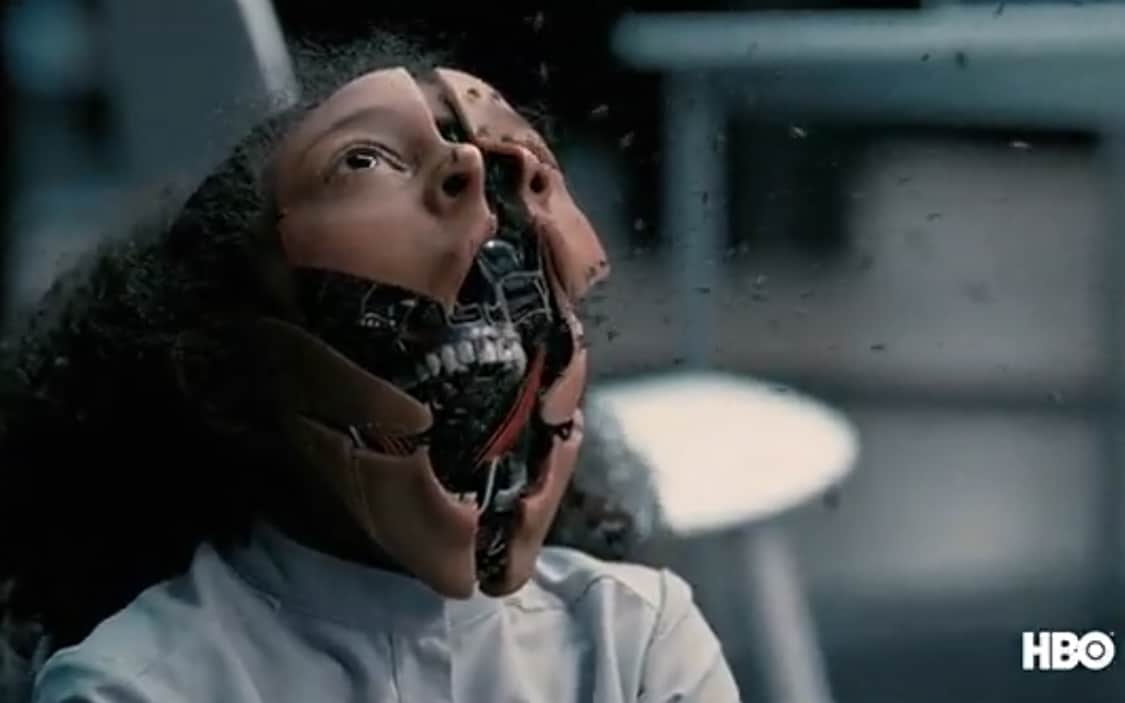
The obvious point of comparison here is something like Maeve’s attempts to reunite with her daughter (Jasmyn Rae) during the first two seasons. Even though Maeve had no real connection to that child beyond the narrative that they shared in an earlier loop, the first two seasons took Maeve’s grief and love seriously. The show afforded enough space to Maeve’s yearning that the audience could invest in Maeve’s desire to reunite with the child.
Even beyond Maeve herself, Westworld has previously demonstrated that it can build compelling characters and relationships within individual episodes. “The Riddle of the Sphinx” and “Kiksuya” were standout episodes of the second season built around previously minor characters James Delos (Peter Mullan) and Akecheta (Zahn McClarnon). A better version of “Fidelity” might resemble either of those two episodes, but it’s impossible to imagine either episode fitting into the fourth season of Westworld.
Ultimately, neither Caleb nor Frankie is developed enough for their reunion to carry the necessary weight. “Fidelity” aspires to tell an epic love story of a father and daughter reunited across time and space, but Westworld seems no longer capable of building the sort of emotional connection necessary to anchor a story like that. This is not to suggest that the third and fourth seasons of Westworld are necessarily weaker than what came before, but they are built differently.
It is a problem that Frankie is largely stuck receiving exposition dumps from Bernard. Bernard was once the show’s beating heart, but the fourth season has relegated him to a simple plot function. While the season has given Westworld veterans like Harris and Newton some solid new material to play amid the accelerated plotting, Wright has been underserved. It doesn’t help that Bernard was a late arrival to the season’s party and is only now connecting to the larger story.
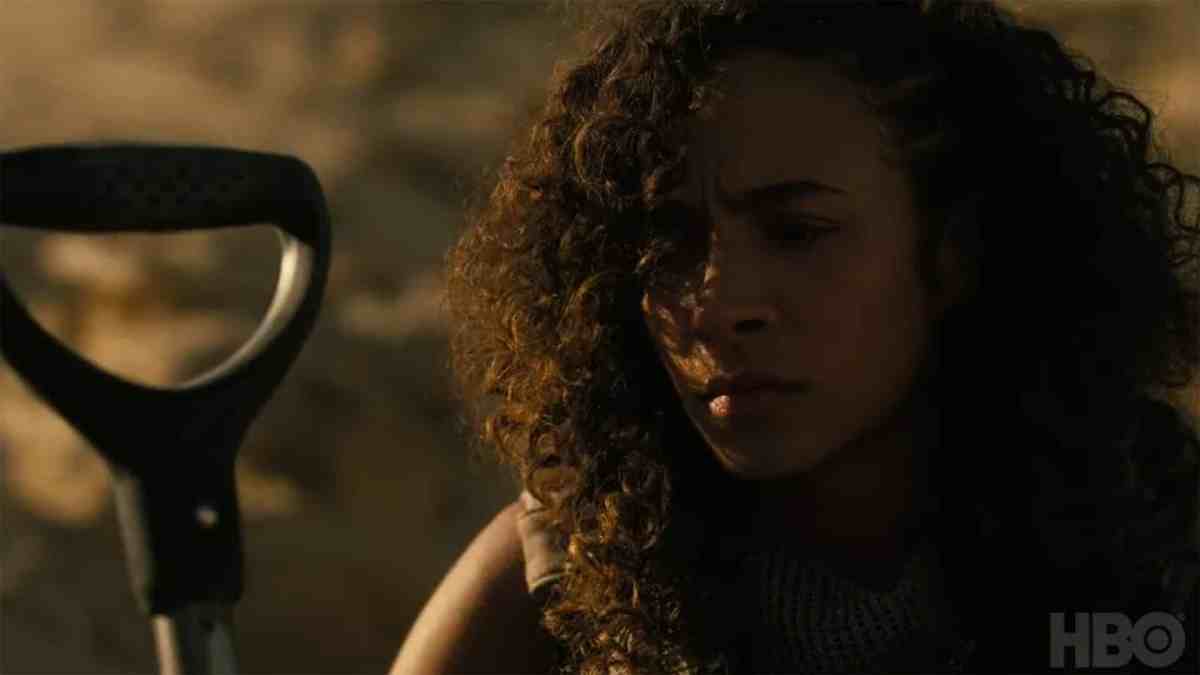
Theoretically, there are some interesting thematic ideas at play here. In particular, it feels interesting that Westworld has collapsed its preoccupation with imagined pasts and potential futures into a distorted multiversal present. If there is a commonality that bridges both halves of “Fidelity,” it is the idea of possibility and probability — the idea that there are an infinite number of possibilities, but only one present reality.
Bernard is constantly trying to figure out which reality he is living, which present he is experiencing. Caleb goes through something similar, discovering that he is just the latest iteration in a long cycle of recreations. When he tries to escape, he finds his path guided by several of those iterations, alternate versions of himself that provide a helpful glimpse of what might otherwise have been. It is no wonder Charlotte used mirrors to collect user data in the park; “Fidelity” is all about reflections.
Unfortunately, while these ideas are interesting, “Fidelity” never narratively coheres. If “Zhuangzi” demonstrated the strengths of this upgraded version of Westworld, “Fidelity” is a study in the limitations of this particular model.
